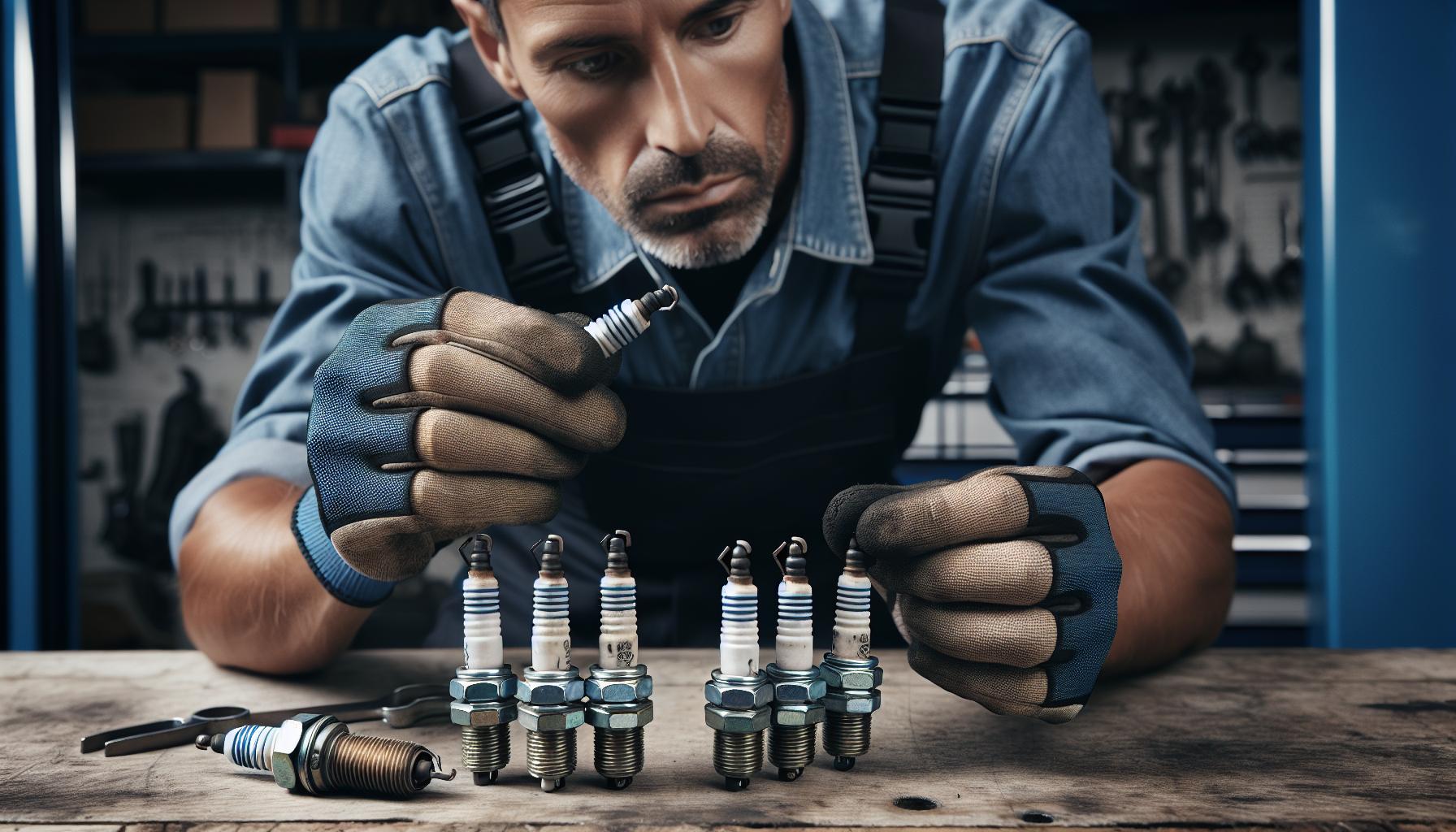Keeping a Honda Accord running smoothly involves more than just regular oil changes and tire rotations. One crucial component often overlooked is the spark plug. These small yet mighty parts play a vital role in the engine’s performance, affecting everything from fuel efficiency to overall power. Knowing when to change spark plugs can save drivers from costly repairs and ensure a seamless driving experience.
Typically, Honda recommends replacing spark plugs every 100,000 miles, but various factors can influence this timeline. Driving conditions, engine type, and even the quality of the spark plugs themselves can dictate when it’s time for a change. Understanding these variables helps maintain optimal engine health and performance, ensuring the Accord continues to deliver the reliability it’s known for.
When to Change Spark Plugs Honda Accord
Spark plugs ignite the air-fuel mixture within the engine’s combustion chamber. This ignition is crucial for generating the power required to propel a vehicle. Spark plugs consist of a metal shell, an insulator, and a center electrode—all components designed to withstand high temperatures and pressures.
Drivers must recognize the telltale signs of spark plug wear. Common indicators include engine misfires, reduced fuel efficiency, and difficulty starting the vehicle. Monitoring these symptoms helps maintain optimal engine performance.
Various spark plug types exist, such as copper, platinum, and iridium. Each type offers different longevity and performance characteristics. For instance, iridium plugs tend to last up to 120,000 miles, while copper plugs usually require replacement every 30,000 to 50,000 miles.
Understanding the specific requirements for a Honda Accord’s spark plugs ensures timely maintenance. Regular inspections, typically every 30,000 miles, enable drivers to catch potential issues early. Maintaining spark plugs not only enhances fuel efficiency but also supports overall vehicle reliability.
Signs That Indicate It’s Time to Change Spark Plugs

Identifying the signs that indicate spark plug replacement is crucial for maintaining a Honda Accord’s performance. Several symptoms can alert drivers to the need for this important maintenance.
Reduced Engine Performance
Reduced engine performance manifests through a noticeable drop in acceleration, sluggishness, or rough idling. When spark plugs wear out, combustion efficiency declines, leading to inconsistent power delivery. Engine hesitation during acceleration or reduced overall fuel efficiency often accompanies this symptom. Addressing this issue promptly can prevent more severe engine damage and enhance driving experience.
Difficulty Starting the Engine
Difficulty starting the engine signifies potential spark plug issues. If the engine turns over slowly or requires multiple attempts to start, worn or faulty spark plugs could be to blame. This problem occurs because ineffective spark plugs cannot ignite the air-fuel mixture properly. Ignoring this sign can lead to more significant starting problems, making timely replacement essential for reliable vehicle operation.
Recommended Intervals for Changing Spark Plugs
Maintaining optimal engine performance requires attention to spark plug replacement intervals. The following sections outline the manufacturer guidelines and various factors influencing spark plug longevity.
Manufacturer Guidelines for Honda Accord
Honda recommends replacing spark plugs every 100,000 miles for most Honda Accord models equipped with iridium spark plugs. Models fitted with copper spark plugs require replacements more frequently, typically every 30,000 to 50,000 miles. Adhering to these guidelines helps maintain engine performance, fuel efficiency, and overall vehicle reliability.
Factors Influencing Spark Plug Longevity
Several factors can affect the lifespan of spark plugs, including:
- Driving Conditions: Frequent short trips and stop-and-go traffic increase wear on spark plugs, necessitating earlier replacements.
- Engine Type: Turbocharged engines or high-performance modifications often exert more stress on spark plugs, leading to more frequent changes.
- Fuel Quality: Using low-quality fuel can result in deposits on the spark plugs, affecting their function and longevity.
- Maintenance Habits: Regular vehicle maintenance, including timely oil changes and air filter replacements, contributes to better spark plug performance.
- Driving Style: Aggressive driving habits such as rapid acceleration and hard braking can accelerate spark plug wear.
Monitoring these factors ensures that spark plugs remain effective, ultimately supporting the engine’s efficiency and reliability.
Choosing the Right Spark Plugs for Your Honda Accord
Choosing the right spark plugs ensures optimal performance for a Honda Accord. Consider the following types:
- Copper Spark Plugs: Copper spark plugs deliver excellent conductivity but wear out quickly. They typically last between 30,000 to 50,000 miles. Ideal for older Accord models, they’re cost-effective but require frequent replacement.
- Platinum Spark Plugs: Platinum plugs offer improved longevity, lasting around 60,000 to 100,000 miles. They provide better performance than copper plugs, making them suitable for mid-range models. Platinum plugs resist wear and help maintain engine efficiency.
- Iridium Spark Plugs: Iridium spark plugs offer the longest lifespan, lasting over 100,000 miles. They feature a fine tip, promoting efficient combustion and excellent performance. They’re ideal for newer Honda Accord models, providing enhanced fuel efficiency and reduced emissions.
When selecting spark plugs, match the specifications outlined in the vehicle owner’s manual. Ensure compatibility with the engine type and model year. High-quality brands, such as NGK and Denso, produce reliable spark plugs specifically designed for Honda vehicles.
Always inspect spark plugs regularly for signs of wear, such as carbon buildup or electrode erosion. Using the right spark plugs not only boosts performance but also maintains fuel efficiency, ensuring the vehicle operates smoothly.
Changing spark plugs at the right intervals is vital for maintaining a Honda Accord’s performance and efficiency. By staying aware of the recommended replacement schedules and recognizing signs of wear, drivers can prevent engine issues and ensure smooth operation. Whether opting for copper, platinum, or iridium plugs, selecting the right type based on the vehicle’s specifications is crucial. Regular inspections and timely replacements not only enhance fuel efficiency but also prolong the engine’s lifespan. Keeping an eye on these components will lead to a reliable and enjoyable driving experience.
